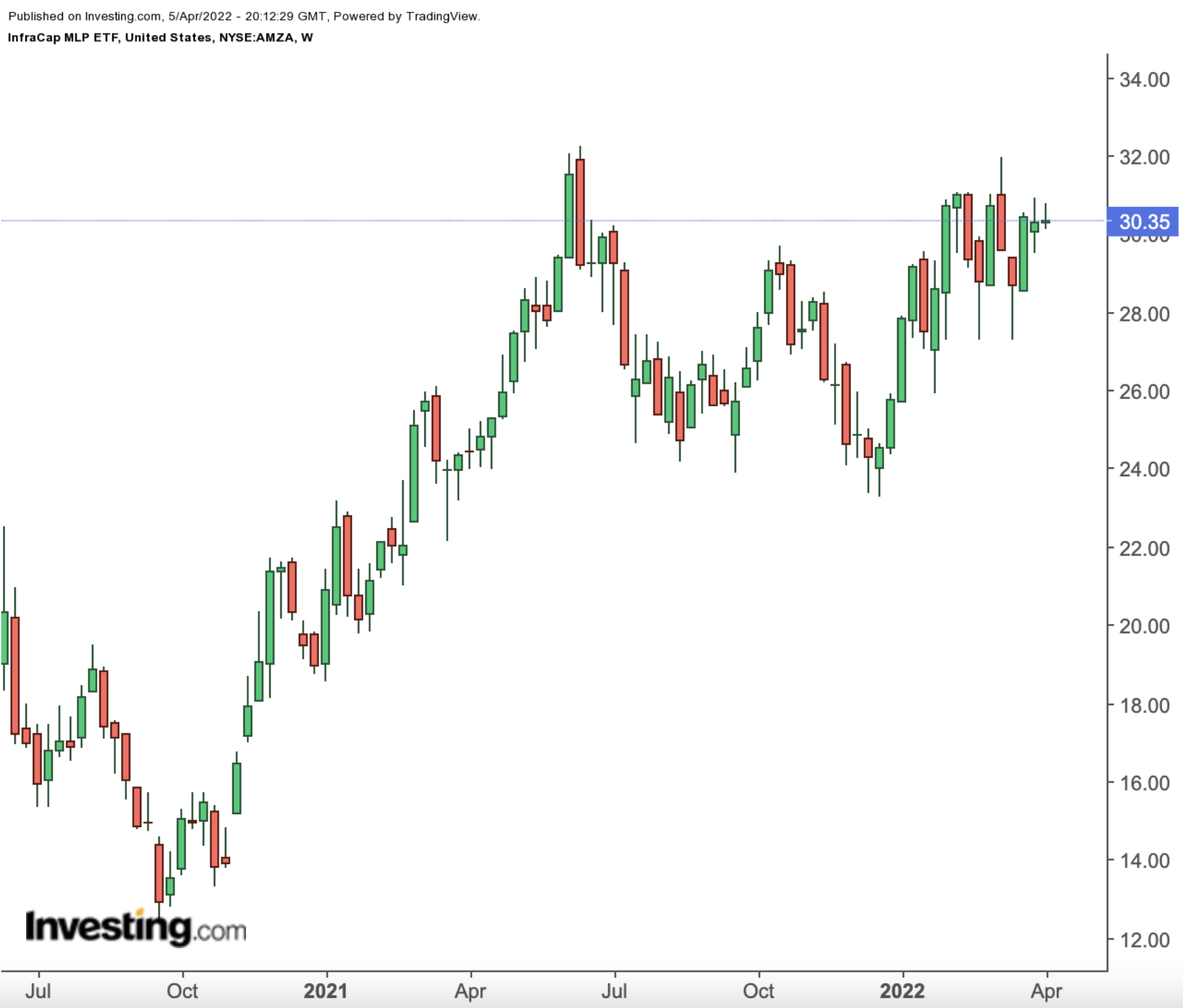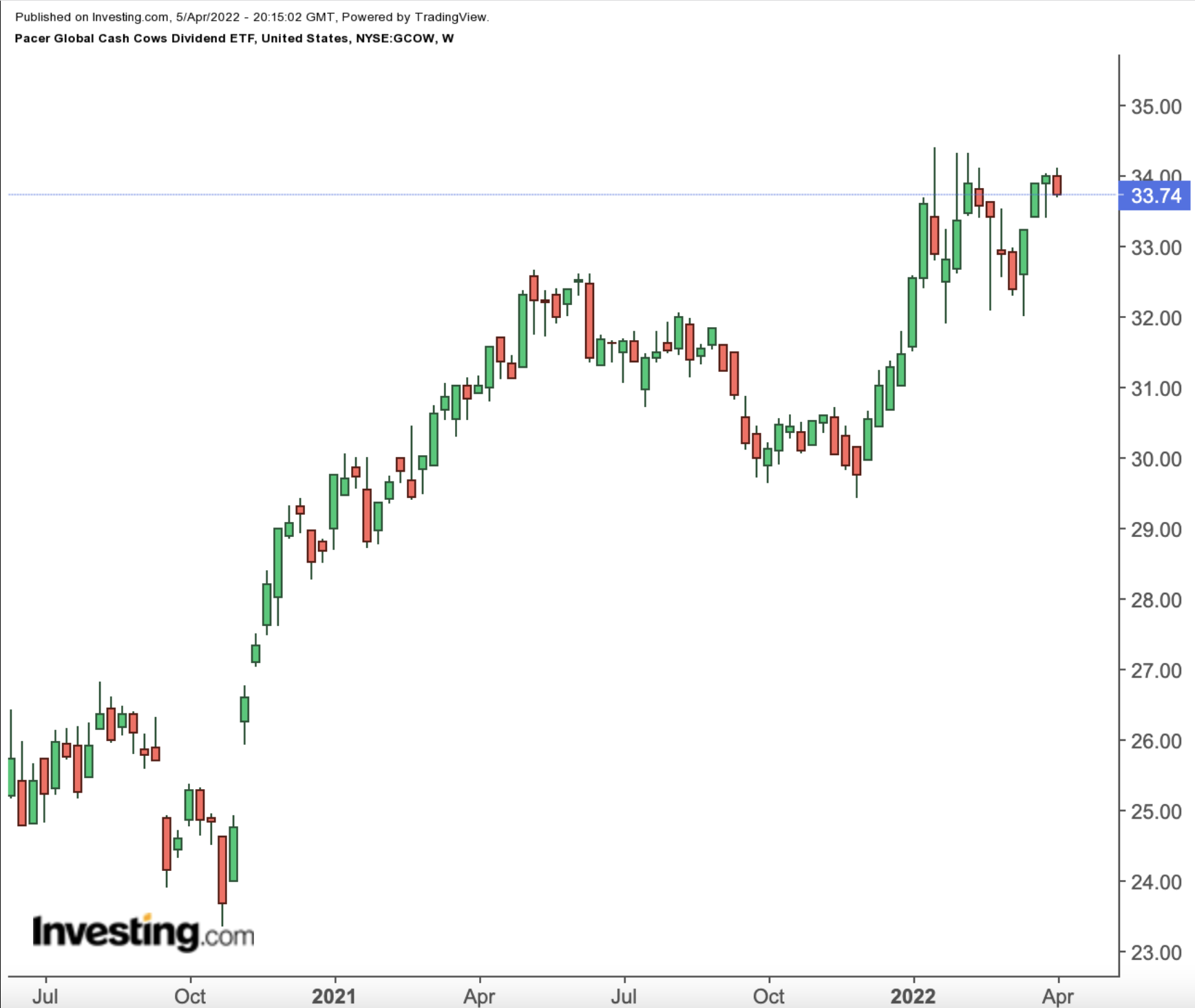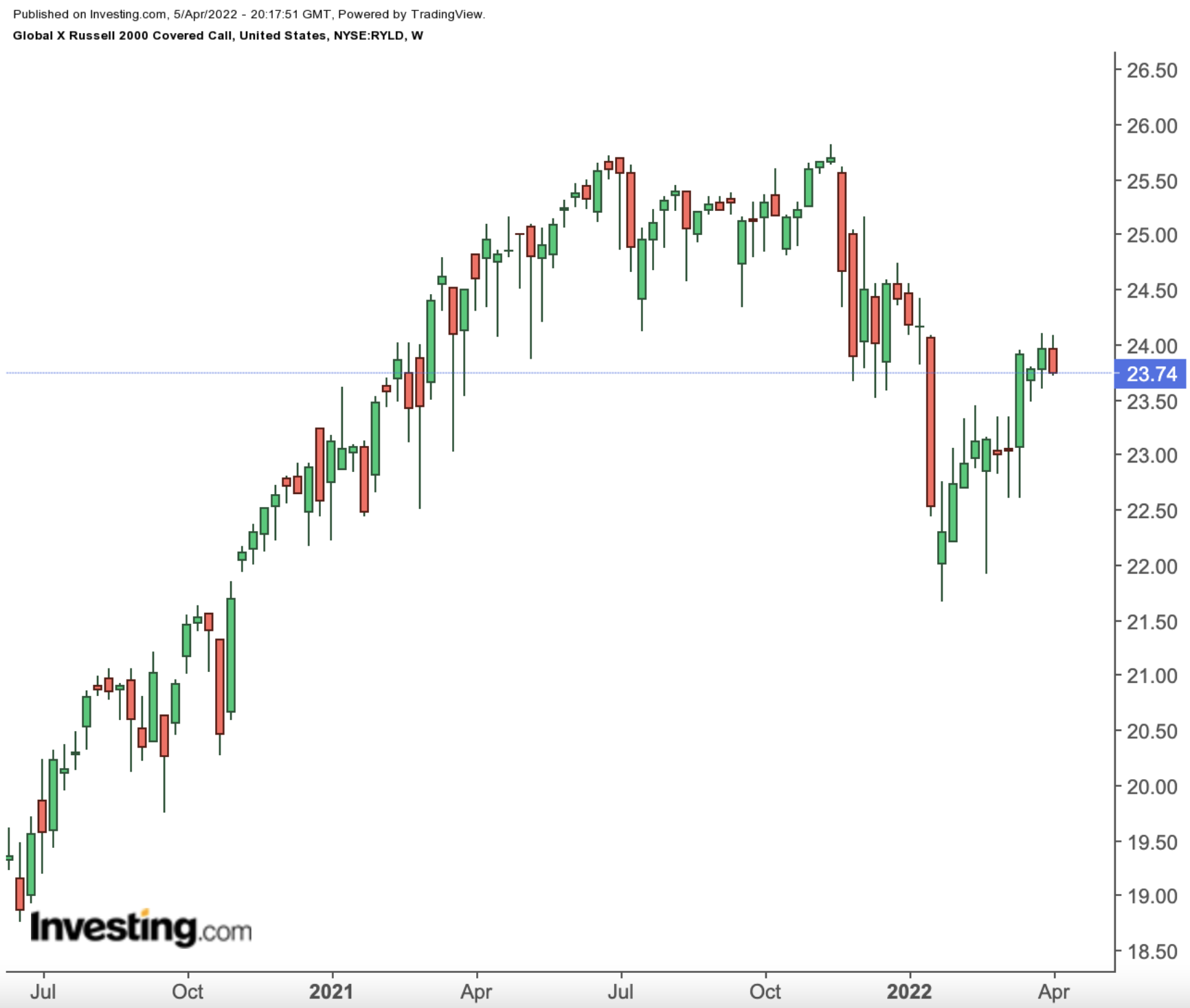Increasing volatility on Wall Street and red-hot inflation levels have put exchange-traded funds (ETFs) that provide passive income in the spotlight. Today’s article introduces three high-yield funds that could appeal to a range of investors.
1. InfraCap MLP ETF
- Current Price: $30.26
- 52-week range: $23.27 - $32.25
- Dividend yield: 8.56%
- Expense ratio: 1.40% per year
Our first fund, the InfraCap MLP ETF (NYSE:AMZA), provides exposure to midstream master limited partnerships (MLPs) which, according to Cohen & Steers:
"[mainly] gather, process, store and transport energy commodities."
The fund, which started trading in October 2014, could be appropriate for those who seek high current income. However, investors should note the lofty annual expense ratio.

AMZA tracks the Alerian MLP Infrastructure Index. The top 3 stocks in the portfolio account for close to half of $318 million in net assets, making it a very concentrated fund.
MPLX (NYSE:MPLX); Magellan Midstream Partners (NYSE:MMP); Enterprise Products Partners (NYSE:EPD); Western Midstream Partners (NYSE:WES); and Energy Transfer (NYSE:ET) are among the leading names in the portfolio.
Pimco suggests:
“…midstream oil and gas pipelines typically employ “toll-road-like” fee-based business models to handle, process and transport oil, natural gas, natural gas liquids (NGLs)… [They have] generally predictable revenues and limited direct commodity price exposure.”
The ETF is up 17.7% this year and 24.6% in the past 12 months. We continue to be bullish on the segment and would consider buying into the declines in an MLP fund like AMZA.
2. Pacer Global Cash Cows Dividend ETF
- Current Price: $33.67
- 52-week range: $29.41 - $34.87
- Dividend yield: 3.92%
- Expense ratio: 0.60% per year
Investors use different valuation models and metrics when looking at potential stocks to buy. One of them is free cash flow or:
“[the] excess cash in a company that shows the level of financial flexibility of the company. It can be a positive signal about the company’s performance.”
Our second fund for today is the Pacer Global Cash Cows Dividend ETF (NYSE:GCOW). It invests in large-capitalization (cap) global names that offer high dividend payments and high free cash flow yields. Net assets have gone over $264 million since its inception in February 2016.

GCOW, which tracks the Pacer Global Cash Cows Dividend Index, has 101 holdings. In terms of sectors, materials lead the fund with 18.2%. Next, we see healthcare (18.0%), communication services (16.3%), consumer staples (15.4%), and energy (15.4%).
The leading 10 names comprise over a fifth of the portfolio. Oil majors Chevron (NYSE:CVX); pharma heavyweights AbbVie (NYSE:ABBV) and Bristol-Myers Squibb (NYSE:BMY); and mining giant BHP (NYSE:BHP) top the stocks on the roster.
GCOW returned almost 7.1% year-to-date and hit a record high in recent days. As of Dec. 31, the fund’s P/E ratio stood at 12.47x. We like the diversity of the fund and the strength of many of the stocks in the fund.
3. Global X Russell 2000 Covered Call ETF
- Current Price: $23.76
- 52-week range: $21.66 - $25.82
- Dividend yield: 13.81%
- Expense ratio: 0.60% per year
Our final fund, the Global X Russell 2000 Covered Call (NYSE:RYLD) is a high-yielding covered call fund. It writes call options on the Russel 2000 Index composed of 2,000 small-cap stocks. The fund was launched in April 2019, and net assets stand at $1.27 billion.

Regular readers of this column would know that we routinely cover covered calls on individual stocks and covered call ETFs. Increased choppiness on Wall Street has recently put this options strategy on the radar of many investors. When volatility escalates, call option prices also increase. As a result, such ETFs typically generate higher income from selling call options.
RYLD is down 2.7% so far in 2022. Still, the fund makes distributions monthly, and its current yield is in double digits. Investors who want to rely on the expertise of a fund manager for an options strategy to generate income should further research a covered call fund such as RYLD.
